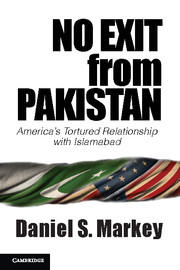1 - No Exit
Published online by Cambridge University Press: 05 June 2014
Summary
During the final dark days of the Second World War, the French philosopher Jean-Paul Sartre first staged his play, Huis Clos, in Nazi-occupied Paris. In English, the title is usually translated as No Exit.
Sartre's drama featured three sinners, all dead to the world, who learn to their surprise that hell is not a land of fire, brimstone, and devils, but an oddly furnished living room where they are subjected to eternal torment by each other. The more they interact, the more the sinners come to appreciate that they are perfectly suited to the task, each vulnerable to precisely the psychological torture meted out by the others, and each capable of inflicting similarly devastating punishment in return.
In a moment of epiphany, one of Sartre’s characters exclaims, “Hell is other people!” And yet, when the living room door swings open and the three have a chance to make a run for it, they cannot. The moment the escape option is presented, the sinners recognize it as an illusion. The only possible path to salvation is through struggle against their special tormentors. And that means there is truly no exit; they are stuck “for ever, and ever, and ever.”
For American and Pakistani diplomats, policymakers, military officers (and a handful of think tank analysts like this author) who have been condemned to work with one another, this vision of perpetual mutual torment strikes close to home. For much of the past decade, Pakistan has been rocked by internal turmoil and exceptional levels of violence. Over the same period, relations between Washington and Islamabad have run from frustrating to infuriating.
- Type
- Chapter
- Information
- No Exit from PakistanAmerica's Tortured Relationship with Islamabad, pp. 1 - 28Publisher: Cambridge University PressPrint publication year: 2013
References
- 1
- Cited by



